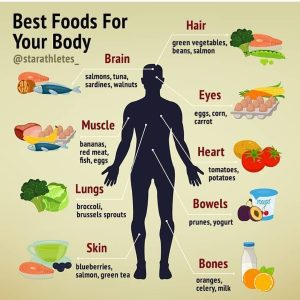
When it comes to maintaining a healthy digestive system, prebiotics play a vital role. While most people have heard of probiotics and their benefits, prebiotics are lesser-known but equally important. In this article, we will explore the concept of prebiotics and their impact on digestive health.
What are Prebiotics?
Prebiotics are specialized plant fibers that are non-digestible by the human body. They act as food for the beneficial bacteria (probiotics) residing in our digestive system. Unlike probiotics, which are live bacteria that provide various health benefits, prebiotics support the growth and activity of these beneficial bacteria.
How Do Prebiotics Work?
The human digestive system consists of trillions of bacteria, both beneficial and harmful, that reside in the gastrointestinal tract. Prebiotics act as a fertilizer for the beneficial bacteria, enabling them to thrive and multiply. By providing nourishment to these beneficial bacteria, prebiotics help maintain a healthy balance in the gut microbiome.
The Benefits of Prebiotics
1. Improved Digestive Health: Prebiotics promote better digestion by increasing the number and diversity of beneficial bacteria in the gut. This helps to enhance nutrient absorption, reduce bloating, and alleviate constipation or diarrhea.
2. Boosted Immune System: Virtually 70% of our immune system is located in our digestive tract. By supporting the growth of beneficial bacteria, prebiotics can strengthen the immune system and decrease the risk of infections and diseases.
3. Reduced Inflammation: Imbalances in gut bacteria can lead to chronic inflammation, which is associated with various health issues such as obesity, heart disease, and autoimmune disorders. Prebiotics help restore the balance, reducing inflammation and promoting overall wellness.
4. Weight Management: Prebiotics have been found to contribute to healthy weight management. They increase the feeling of fullness, regulate appetite, and assist in maintaining a healthy metabolism.
Sources of Prebiotics
Prebiotics are naturally present in certain foods. Some of the main sources include:
1. Chicory Root: This is one of the richest sources of prebiotics, containing a fiber called inulin. It can be consumed in the form of a supplement, added to food, or found in herbal teas.
2. Jerusalem Artichoke: These root vegetables are packed with inulin and other prebiotic fibers.
3. Garlic and Onions: Both garlic and onions contain prebiotic fibers that support the growth of beneficial gut bacteria.
4. Bananas: Ripe bananas are an excellent source of prebiotics, particularly when they have developed brown spots.
Supplementing Prebiotics
In addition to consuming prebiotic-rich foods, prebiotic supplements are also available in the market. These supplements offer high concentrations of prebiotic fibers and can be a convenient option for those who have difficulties incorporating enough prebiotics into their diet.
Conclusion
Prebiotics play a crucial role in maintaining optimal digestive health. By nourishing the beneficial bacteria in our gut, prebiotics contribute to improved digestion, a strengthened immune system, reduced inflammation, and even weight management. Ensuring an adequate intake of prebiotics through a balanced diet or supplementation can have long-term positive effects on our overall well-being.

